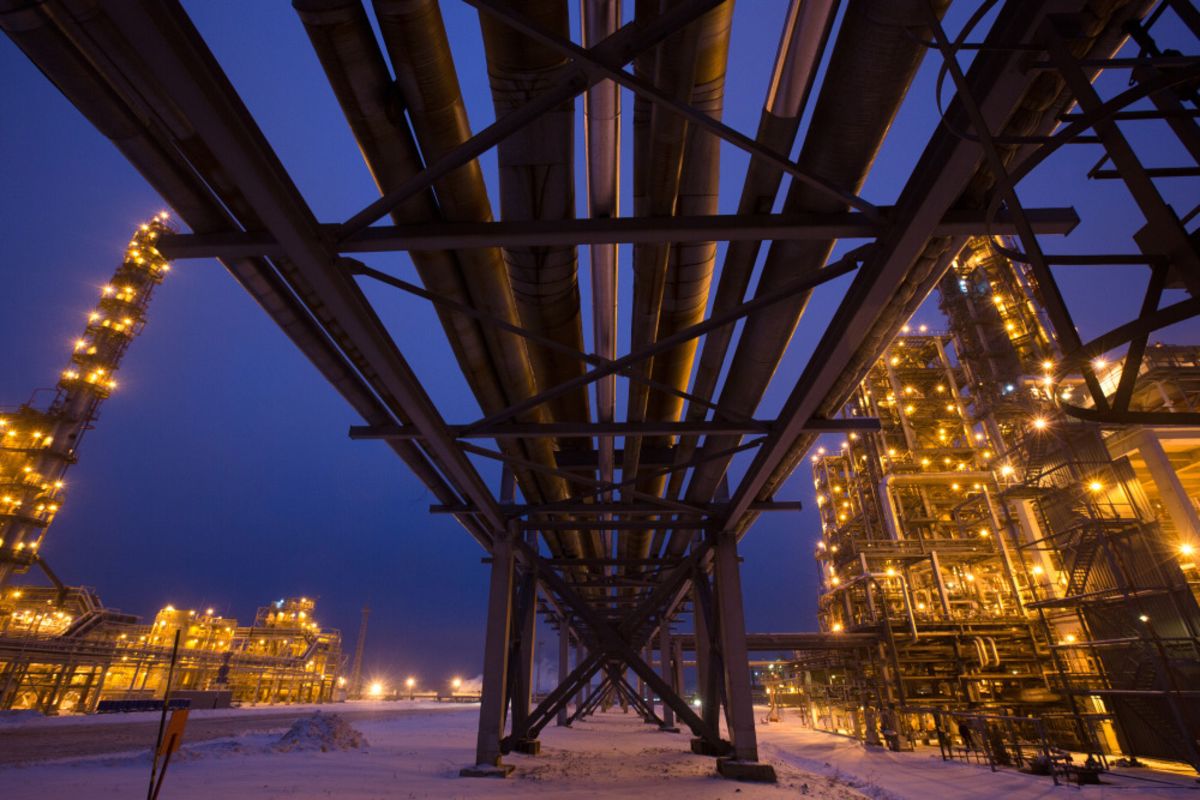Commodities
G7 countries back the price cap on Russian oil. Bloomberg found out about the discussion in the EU of the $60 price cap on Russian oil

EU member states are discussing a $60 price cap on Russian oil, Bloomberg reported, citing knowledgeable sources. G7 countries back the price cap on Russian oil.
The EU had planned to announce a price cap on Russian oil on November 23, but negotiations within the bloc were delayed. In four days, on December 5, the embargo on fuel imports to the European Union by sea will come into force. but the decision has not yet been taken and coordinated with the G7 countries, which are not members of the EU. Within the European Union, Poland, Lithuania and Estonia require lowering the bar much lower, and Greece, Cyprus and Malta, which have a very developed shipping industry, on the contrary, insist on softer conditions. Explained Bloomberg.
It is still unclear whether both groups are willing to go to the limit of $60 a barrel, but most – agree, subject to other requirements, say agency sources. Negotiations are ongoing. The decision requires the approval of all EU members and the agreement of the decision with the G7. According to one of Bloomberg’s sources, $60 a barrel falls within a suitable range for the G7.
What does the price cap on Russian oil mean?
What does the price cap on Russian oil mean? $60 a barrel is even a bit more than what Russian oil costs on the market now, Bloomberg said. The purpose of the cap is to limit Russia’s income from selling oil while keeping it on the world’s market. And EU sanctions, if the ceiling price is not set, will prohibit maritime transport of Russian oil to third countries and insurance of these shipments.
For the scheme to work, the ceiling must be attractive enough for Russia to continue trading; otherwise Moscow could threaten to reduce production, and this would lead to a spike in global oil prices. Bloomberg explained.
The day before the EU embargo goes into effect, OPEC+, in which Russia also sits, will meet. On November 29, sources told Bloomberg that the format of the meeting was suddenly changed to an online meeting instead of a face-to-face meeting. The sources at Bloomberg did not explain what this was about. But we note that the tension in the market is already affecting even Google stock price predictions.
At the last meeting on October 5, which was the first face-to-face meeting since the beginning of the pandemic, OPEC+ went for the sharpest production reduction since 2020 – by 2 million barrels per day. 10 traders out of 17 surveyed by Bloomberg expected that new production cuts could follow at the new meeting as well.
Earlier we reported that oil prices are falling amid protests in China.
Commodities
Oil prices rise; U.S. crude inventories plunge, Russia-Ukraine truce eyed
Commodities
India’s Reliance to stop buying Venezuelan oil over US tariffs, sources say
Commodities
Oil prices climb on Venezuela supply worries

 Forex3 years ago
Forex3 years agoForex Today: the dollar is gaining strength amid gloomy sentiment at the start of the Fed’s week

 Forex3 years ago
Forex3 years agoUnbiased review of Pocket Option broker

 Forex3 years ago
Forex3 years agoDollar to pound sterling exchange rate today: Pound plummeted to its lowest since 1985

 Forex3 years ago
Forex3 years agoHow is the Australian dollar doing today?

 Cryptocurrency3 years ago
Cryptocurrency3 years agoWhat happened in the crypto market – current events today

 World3 years ago
World3 years agoWhy are modern video games an art form?

 Commodities3 years ago
Commodities3 years agoCopper continues to fall in price on expectations of lower demand in China

 Economy3 years ago
Economy3 years agoCrude oil tankers double in price due to EU anti-Russian sanctions























